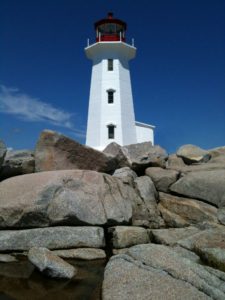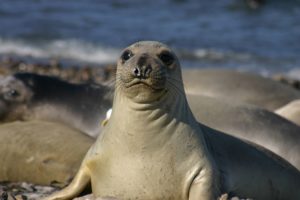PSA day was by far the most interesting Pro-D Learning Opportunity I have attended so far.
The morning began with a presentation about Koh-Learning In Our Watersheds, with a great presentation about a teacher and students who have been doing place-based learning. While I feel like these kinds of opportunities are rare, the students who spoke about the project surprised me with their level of understanding. One student explained, “I found this learning to be more meaningful to the students and the teachers. I’m not usually very social, but here I am talking to a big group of people,” showing that the learning did not stop at the shoreline. Rather, both students are now inspired to advocate for a topic they care about. Information and personal involvement has lead to action and further learning. Both students spoke well, with clarity and sincerity. The language they used showed that they understood the learning. This kind of place-based learning is something to aspire to, and maybe one day I will get the chance to do something similar, but for now it seems daunting.
The next session I attended was about fossil fuels and greenhouse gasses. The speaker went through a lot of information and the presentation had an advertisement-like quality until he got to how he teaches climate justice. He suggested asking members of the local community into the classroom to talk about how their businesses or organizations are addressing climate change. For example, ask someone from the local car dealership to talk about industry innovations or contact BC Hydro for more information on their commitment to eliminate fossil fuel by 2040.

Free image/jpeg, Lighthouse
The speaker also suggested that students could do a project on an area that interested them. They could choose from topics such as solar power, Tesla, hydrogen powered cars, space topics, mining, artificial intelligence. Then the students would do research and become the expert on their subject. They could make a display or PowerPoint to present their learning to the class. This seems like an idea that would be useful in a future middle or high school class.
The last session I attended was with a MA student who had spent 100 days mostly alone on a remote island off the coast of Vancouver called Race Rocks Ecological Reserve. This was the most interesting learning of all for me because there are applications for classrooms that could be used anywhere. The ecological reserve has a functioning lighthouse and is home to a group of elephant seals and many other animals and plants. There is constant research and monitoring of the environment and all the species that live there, and it is available to the public.

Elephant Seal in front of pod on beach, Portrait
There are opportunities for field trips, but the aspect that interested me the most is the live cameras. Without having to leave the classroom, students can access the ecological reserve in real time. The cameras can be controlled for 2 minutes, giving the experience a personal aspect that most videos do not allow.
Links to Race Rocks live cameras:
http://64.251.74.41/viewer/live/en/live.html
http://64.251.74.45/viewer/live/en/live.html
This is exciting to me because teachers and students can access the learning opportunity from anywhere, and without needing extra funding. Additionally, there are a hundred Ecological Reserves in BC and many of them are accessible by cameras. The speaker also directed us to the TREK Program and Education Outside the Classroom for further learning opportunities and ideas.
Leave a Reply